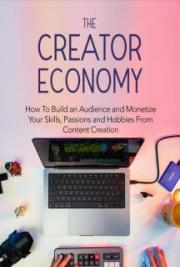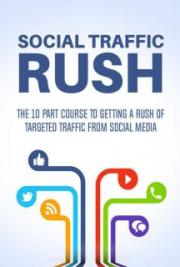Chapter XXI. The Ichabod of
Mule-rooms, some Drastic Musing,
College at my Finger-tips,
the Mill People wait to let me
pass, and I am Waved
into the World by a
Blind Woman
ON my return from Newport I went to work in one of the oldest mills in the city. The “mules” were in a gloomy basement—a crowded, dim, and very dirty place to work in. It was the Ichabod of mule-rooms, with every trace of glory gone. The machinery was obsolete and had to be helped along with monkey-wrenches, new parts, and constant, nerve-wearing wearing watchfulness. The alleys were so narrow that the back-boys had to edge in between the frames; and expanded chest often meant a destructive rubbing on bobbins and a breaking of threads. It always seemed to me that this room was reserved by the corporation to work off its veteran spinners and its unreliable ones, its veteran machinery, and its bad-tempered, ineffective bosses. This mule-room was the byword among the spinners at that end of the city. A man hung his head when he had to tell another that he was working in it; for it generally was his testimony to his fellows that he was in the last ditch. Spinners graduated from that room into scrubbing or oiling.
The personnel of this room was always changing; but its prevailing character remained the same: a dull-eyed, drunken set of men, a loafing, vicious set of young fellows who worked a week and loafed three.
I chose to work in that place because it was my first opportunity for an advance from doffing to “joiner.” A “joiner” is one who shares with another the operation of a pair of mules—a semi-spinner. The pay is divided, and the work is portioned off between the two. I had been working toward this position for six years and a half, and now it had come, even in that miserable room, I was eager to see how I should manage.
But, oh, the mockery and vanity of all efforts, even my wild ones, to master one of those machines! The lurching, halting, snapping things could not be mastered. Threads snapped faster than I could fasten them. One tie and two breaks, two ties and three breaks, along the row of glistening spindles, until there were so many broken threads that I had to stop the mule to catch up. And every stop meant the stoppage of wages, and the longer a thread stayed broken, the less I was earning; and on top of that, the bosses swore at us for stopping at all. I should have stopped work then and there—it would have been the sensible thing to do—but I was no loafer, and I was trying to make good in this new work—the end of a long desire. The other “joiners” and spinners did not try to keep at it. They gave up the work as soon as they discovered how useless it was to try to make a decent wage from the worn-out machines. Only myself and a few poor men who were there because they could not get any better place stayed on and fought the one-sided fight. Every time the machinery broke—and breaks were constant—the machinist grumbled, and took his own time in coming with his wrenches.
The physical and mental reaction of all this upon me was most woeful. My muscles grew numb under the excessive pressure on them, so much so that I often stood still when the threads were snapping about me and looked on them as if I had never seen a broken thread before. Or I would suddenly stop in my wild dashes this way and that in the mending of threads and look dazedly about, feel a stifling half-sob coming to my throat, and my lips would tremble under the misery and hopelessness of it all. My only consolation, and very poor, too, lay in the clock. At six o’clock it would all end for a few hours at least, and I could get out of it all. But when you watch the clock under those circumstances, an hour becomes two, and one day two days. So the labor was, after all, a wild frenzy, a race and a stab and a sob for ten and a half hours! I can never think of it as anything more.
Some of my work-fellows in that room were sent to jail for assault, petty thieving, and drunkenness. I used to think about them, in the jail, doing light work under healthy conditions, even though they were paying penalties for lawlessness, but I, who had done no crime, had to have ten hours and a half of that despairing contest with a machine. How much better to be sewing overalls or making brooms in a jail! I had to stay in the house at night in order to be thoroughly rested for the next day’s work. I had no liberty.
And, added to all this, there was the constant depressive contact with unsympathetic and foul-mouthed desecrators of ambition. Those who knew me in that room were aware that I was trying to avoid every degenerative and impure act. Some of them passed word around also that I was attending such and such a church! They came to the end of the mule, when the boss chanced not to be around, and, in a huddled group, stood at my elbows, where I had work to do, and put on their dirty lips the foulest vocabulary that ever stained foul air.
Then one day there came a flash which clearly lighted up everything. “Why are you going through this wild, unequal labor in this dull room day by day! Why? Do you absolutely have to do it? Are others keeping at it, as you? Why, why, why?” each one bigger than its fellow, made me meet every fact squarely. “To what end all this?”
My labor was helping to buy beer at home! I was giving up all my wage to my aunt, and getting back a little spending money. I had fifteen cents in the bank at the time. I did not have to overstrain myself as I was doing. I had the privilege of giving up my work at any moment I chose. I was no slave to such conditions. No man could drive me to such tasks. Giving up the work only meant a scolding from my aunt and a little going about among other mills to find another, and perhaps better, position. This was a new thought to me—that I could leave my work when I wanted; that I might be given work too hard for me.
Previously I had worked on the supposition that whatever was given me ought to be done at all costs; that the mill was the measure of a man, and not man the measure of the mill. I had always looked upon my work as a test of my moral capacity; that any refusal to work, even when it was harder than I could bear, was a denial of my moral rights. But now the worm of conscience was boring through me. Why should I, at twenty years of age, not be entitled to what I earned, to spend on my education, instead of its being spent on my aunt’s appetite for intoxicants?
Then, too, why should I have to work with people who had no moral or mental sympathy with me? Was five dollars and seventy-five cents, my pay for the first week in that gloomy room, worth it? Assuredly not.
But, then, what could I do outside of the mill? I had done nothing else but work in the mill and spend a little time on a farm. If I left the mill at so late a time, left all the technical knowledge I had gathered while I had been going through it, should I be doing the best thing for my future? There seemed nothing in the future from the mill, for, as I have shown, I had not the strength to cope with more difficult tasks than those that then faced me. Probably if I got out of doors, in some open-air work, I should gain strength and be able to make progress in some other line of work. But I had been trying for that, and nothing had come. What then?
Then the greatest light of all came—flooded me. Leave the mill at any cost! Stop right where I was; quibble no more, offend all, risk all, but get away from the mill! It was all so simple after all! Why had I not worked it out before? Leave home! Have all I earned to save for my education! That was my emancipation proclamation, and I started to follow it.
First of all, I went to the overseer in that dingy room and told him frankly that the work he had given me to do was too hard for me. I could not keep it up. I also told him I did not care to leave just then, but, if he had any easier work in the room—doffing, for instance—I should like to continue. He did not receive this declaration with any expression of reproach, as I had expected, but said simply: “You go to work back-boying on those first three mules. You’ll make as much money by it as at anything in here.”
This first break made, how easily all others followed, as if they had been waiting around all the time! It was just at this time that I met a young fellow who had come back to the city to spend his vacation from study at a university in the Middle West. To him I told all my thoughts concerning getting away from the mill. I said: “I wonder if I went out where you go to college, and worked at something for a time, just to be away from mills, whether in time I might not have money enough on hand to be able to start on my way towards an education?”
“How much do you think you would have to save?” he asked, smilingly.
“Why—why, hundreds of dollars, isn’t it?”
“Do you think so, Al?”
“Why, certainly.”
“And how long would you work to save up?”
“Oh,” I replied, “that depends upon what I get to do and how much I could put by.”
“Suppose, Al, that you could go right out and start right in with school at the university—it has a preparatory course—and work your way along, what would you say?”
“You mean, jump right in now, this year?”
He nodded.
“But it’s all I can do to board and clothe myself by working hard in the mill. I couldn’t by any means work hard enough to pay for going through a school.”
“How much would you be willing to—oh, Al, you’re all wrong about the cost. I tell you, old fellow, you can get through a year at my place on a hundred dollars: board, tuition—”
“What’s that?”
“Teaching and room and heat. All the rest of your expenses won’t amount to over fifty dollars, if you’re careful.”
I gazed on him, open-mouthed, for I thought he was laughing at me.
“Say—you aren’t kidding me, are you? All that is straight—about being so—so cheap?”
“Why, yes, it’s all true enough. I think you can manage it too, Al. I’ll do my best to speak a word for you. Get ready to go in three weeks, no matter how much money you have. I think you’ll be able to get some outside work to do at the university, to work your way through and meet expenses.”
“Well,” I said, “I sha’n’t be sorry even if I don’t get a chance at the school for a while, you know. If I could only get something to do near there, my chance might come later. I shouldn’t be any worse off than I am here. I can earn my living at something, don’t you think so?”
“Why, yes, I do; but I think you will have a chance at the school without having to wait.”
“Oh, I can hardly believe that,” I exclaimed for sheer joy.
“But you can make all your plans for it, just the same,” said my friend with confidence.
This new outlook set every strong emotion shouting in me. The world was not dressed in so gray a garb as I had thought. I went home and told my aunt about my new plan. She said:
“You’ve never asked me if you could go!”
“Well, no,” I said, “I haven’t; and I don’t think I need to. I mean to set out for myself, at any rate. It’s about time now that I was doing something for myself, don’t you think so?”
“I think you’re an impudent puppy, that’s what!” indignantly cried my aunt.
I told Pat and Harry, and they could hardly believe their own ears; but they urged me to take the chance, for they thought it was a “chance.”
My work—all work in the mill—had suddenly taken on a temporary aspect now, a means to a great end and not an end in itself. I could look on it now and feel that I had mastered it at last. The throbbing, jubilant shout of the victor was on my lips now. I saw past those lint-laden rooms, the creaking, whirling pulleys, and the clacking belts; past them, and everything that the mill meant to me; to a very pleasant new life ahead; one whose ground was holy and on which it was the privilege of but few to walk. I think there must have been a complete effacement of all the lines that had marked my face. For once, I felt sure of myself; sure that all the lines of leading were to mass into one sure road toward a better thing.
My mind was not on my work for the following three weeks. I went about with a dream in my eyes. I know I whistled much and began to lose all respect for those machines which had driven me, in times past, like a chained slave. I even found myself having much pity for all the other men and boys in the mill. I went among them with hesitation, as if I had a secret which, if told, would make them feel like doing what I was about to do.
I had found out from a ticket agency in the city that my fare to the Middle West would cost approximately seventeen dollars. I knew that in two weeks, with the week’s wage that the mill always kept back and with the seven dollars my Uncle Stanwood had promised to let me have, that I should have my railway fare and incidental expenses, anyway. So there, in the ticket agency, I had the clerk take me, with his pencil, over the route I should later take in the cars. It was a wonderful itinerary. I was to see the mountains of New England, the lakes of the border, and to plunge into a new part of the country! It would take me three days. How I stared at the prospect of so much traveling! I obtained time-tables with maps containing the route over the different railways I should ride on during that journey away from the mill. Three days from the cotton mills! That was a thought to make a fellow dance all day without rest.
One day I lay sprawled out at full length in an alley behind a box, so that the overseer might not see me, when Micky Darrett peeped over my shoulders at the maps I had spread out on which I had traced and retraced my great journey with a pencil.
“What yer’ doin’, Priddy?” said Micky. “Oh,” I announced with studied nonchalance, “just planning out the road I shall take in two weeks. I’m going to college, you know.”
“Oh,” laughed Micky, “quit yer kiddin’ like that! What are you doin’, really?”
“Just what I said, Micky. I mean it.”
“Gee!” gasped the little Irishman; “yer a sporty bluffer, Priddy!”
“But ’tis true, though,” I insisted.
“What yer givin’?” growled Micky. “It’s only swells goes ter college.”
“That’s what you think, Micky, but it’s God’s truth that I go in two weeks and try to make a start.”
“Gee!” he gasped; “I allus thought you was poor. You must have got a lot of money saved, all right, all right!”
“That’s where you’re wrong, Micky. I shall have about three weeks’ wages and what my uncle gives me—seven dollars—if he gives it to me at all. That’s all I’ve got to start on.”
“Don’t stuff that down me, Priddy!” cried Micky, in great disgust, for he hated to be made sport of. “You can’t bluff yer uncle.”
But nevertheless he published all over the room what I had told him, and thereafter I answered many questions about myself and my plans, and had to spend much energy in rebutting the prevalent suspicion that I was “bluffing the room.”
Then came my last Saturday in the mill—the last day I have ever spent in the mill. I did my work with a great conscience that day. I don’t believe the second hand had to look twice to see if I had done my sweeping well. The spinners had become very friendly, as if my ambition had won respect from them, and even the overseer came to me just before I left the room, took me by the hand, and said: “I wish you the very best of luck, Priddy. Keep to it!”
On Monday morning, at six o’clock, I sat in the train. I had drawn thirteen dollars from the mill, received seven dollars from my uncle, said good-by to my old friends, and paid fifteen dollars and sixty-five cents for a ticket. Aunt Millie, in tears, had kissed me, and had hoped that “I’d do well, very well!” Uncle Stanwood had carried my hand-bag for me to the electric car and had given me good counsel out of his full heart. Now I sat listening to the mill bells and whistles giving their first warning to the workers. “You’ll never call for me again, I hope!” I said to myself as I listened. Then the train started, and I glued my face to the window-pane to catch a last glimpse of the city where for seven years I had been trying to get ahead of machinery and had failed. The train went slowly over the grade crossings. I saw the mill crowds at every street, held back by the gates, waiting deferentially while I, who had been one of them last week, was whirled along towards an education. I saw them as I had walked with them—women in shawls and looking always tired, men in rough clothes and with dirty clay pipes prodded in their mouths, and girls in working aprons, and boys, just as I had been, in overalls and under-shirts. And I was going away from it all, in spite of everything!
One of my friends was an old woman, stone blind. When I had given her my farewell, she had said: “Al, I’ll be at the crossing in front of my house when the train goes by on Monday morning. Look for me. I’ll wave my handkerchief when the train passes, lad, and you’ll know by that sign that I’m sending you off to make something of yourself!”
We came to the outskirts of the city; the mill crowds had been left, and at last a lonely crossing came, the one for which I had been looking. I had the window open. The train was gathering speed, but I saw the black-garbed blind woman, supported by her daughter, standing near the gates, her eyes fixed ahead, and her handkerchief fluttering, fluttering, as we plunged into the country.







